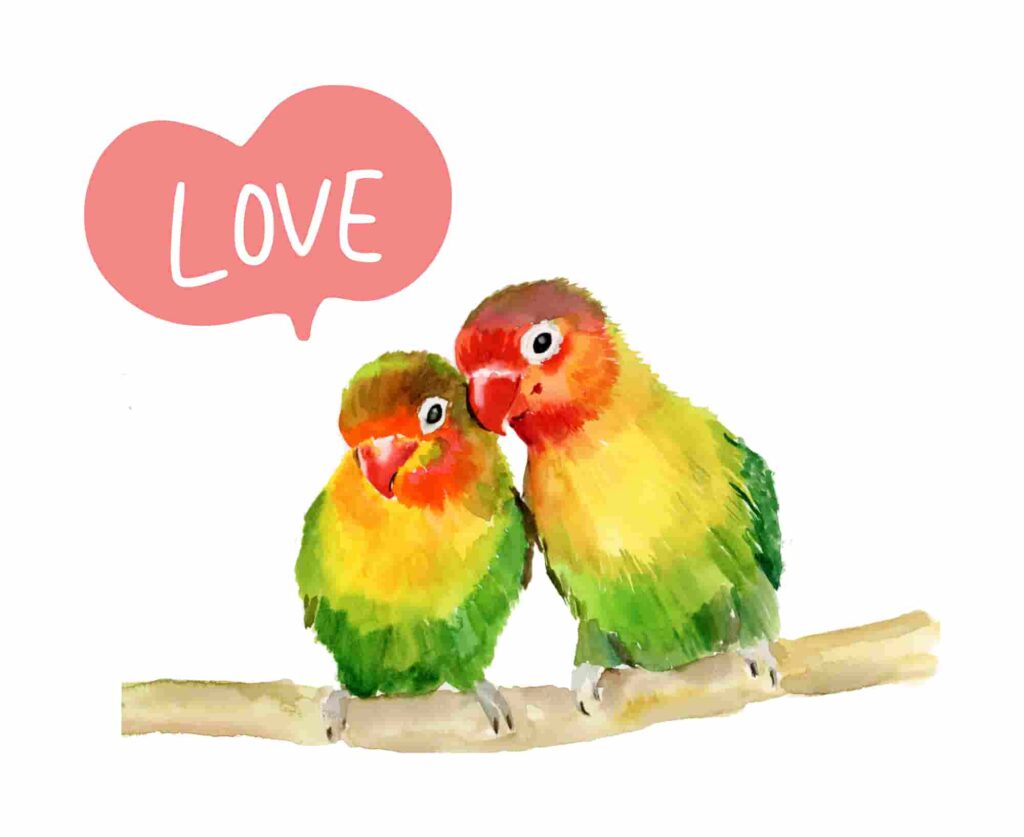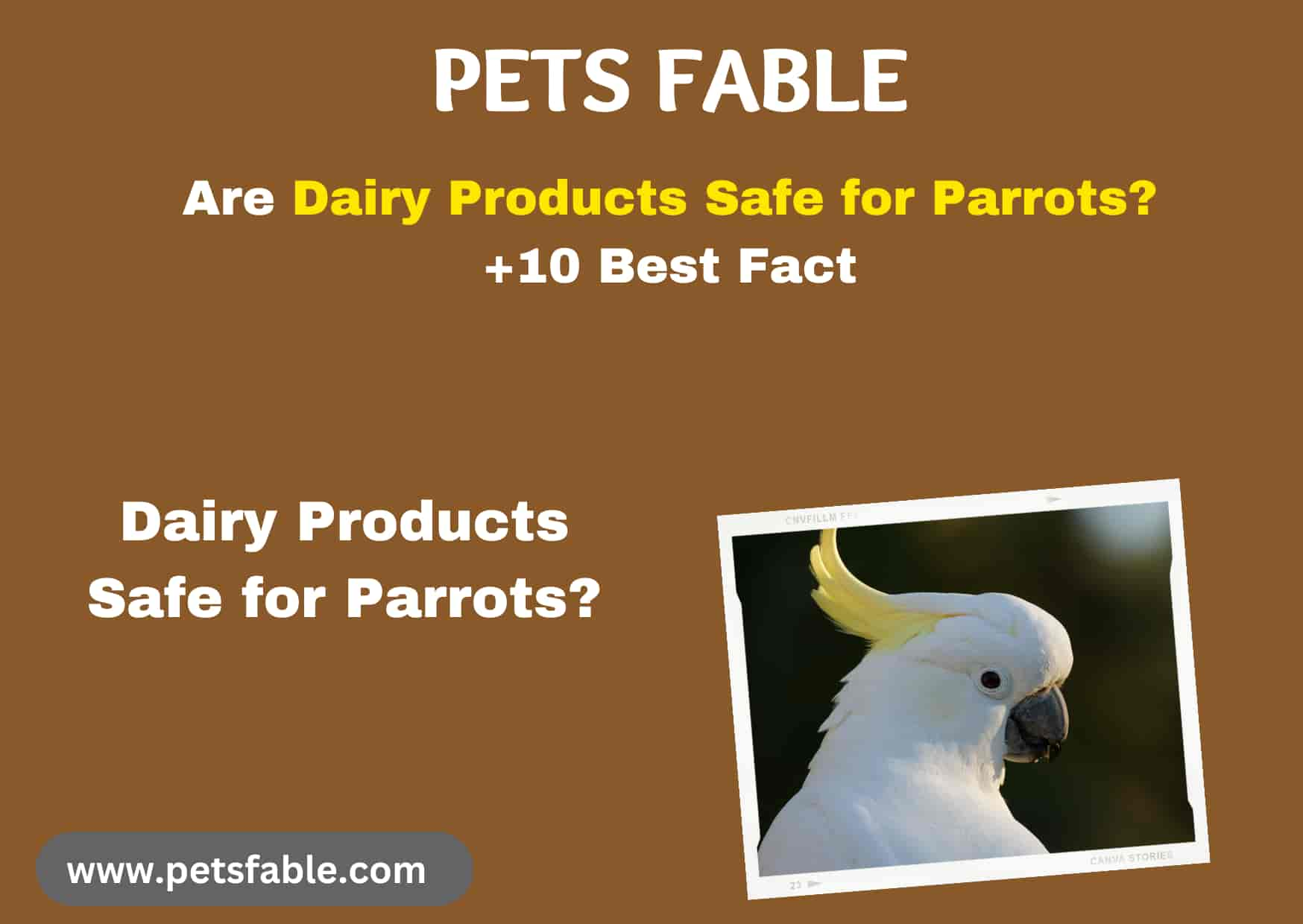Can Parrots Eat Dairy Products? Understanding the Risks and Alternatives
Parrot health is largely influenced by their diet, which ideally should mimic what they would naturally consume in the wild.
As pet owners, it’s natural to question the safety of feeding certain foods, particularly those outside their usual diet, such as dairy products.
While dairy is common in human diets, it’s important to understand how it affects parrots. This guide will explore whether dairy is safe for parrots and the best alternatives to consider.

Are Parrots Lactose Intolerant?
Parrots, like many animals, are likely to suffer from lactose intolerance. This means that they lack the necessary enzymes to break down lactose, the sugar found in milk and other dairy products.
Unlike humans, whose digestive systems are equipped to handle lactose, parrots often experience digestive issues if they consume dairy. Symptoms may include diarrhea, stomach discomfort, and nutritional imbalances if dairy replaces more essential nutrients in their diet.
Veterinarians generally recommend avoiding dairy for parrots due to these potential health risks.
Lactose Content in Common Dairy Products
It’s important to know which dairy products contain lactose and whether they’re safe for parrots. Here’s a breakdown:
- Milk (Whole & Skimmed): Contains lactose, and should be avoided for parrots.
- Cream (Heavy, Light, Whipping): Contains lactose, but in smaller amounts. Still not safe for parrots due to high fat content.
- Butter: Contains minimal lactose but is high in fats, making it unsuitable for parrots.
- Cheese:
- Fresh Cheeses (Ricotta, Cottage Cheese, Mozzarella): Contain lactose. Not recommended.
- Aged Cheeses (Cheddar, Parmesan): Typically contain less lactose due to the aging process. These may be tolerable in small amounts, but caution is still advised.
- Yogurt: Contains lactose, though some types (like live-culture yogurt) may have lower lactose levels. Unsweetened yogurt is safer if given in moderation.
- Ice Cream: Contains both lactose and high sugar, making it unsuitable for parrots.
- Sour Cream and Buttermilk: Both contain lactose and should be avoided.
- Kefir & Condensed Milk: Both contain high lactose levels and sugars—avoid giving these to parrots.
- Lactose-Free Milk Products: These may be an exception, but even these should be offered sparingly.
Also read: parrot-beaks-explained-everything-you-need-to-know
Should You Give Your Parrot Dairy?
While some parrots may enjoy dairy products, moderation is key. Certain types of cheese or yogurt with reduced lactose levels can provide beneficial protein and calcium, but these should not replace primary food sources. It’s crucial to ensure that dairy doesn’t compromise the nutritional balance your parrot needs.
For those who want to offer alternative calcium sources without the risk of lactose intolerance, consider providing:
- Cuttlebone
- Mineral blocks These alternatives can provide the same benefits as dairy without the potential digestive problems.

What to Do If Your Parrot Loves Dairy
If your parrot shows interest in dairy, it’s important to be cautious. Some parrot owners report that their birds can consume small amounts of cheese or yogurt without noticeable ill effects, while others observe digestive distress after feeding dairy.
Also read: why-do-parrots-talk-and-how-to-train-them
If you choose to offer dairy, start with a very small amount and monitor for any adverse reactions. Lactose-free products, such as certain yogurts, may be a safer option, but should still be given sparingly.
FAQ’s:
1. Can parrots eat dairy products?
Parrots should generally avoid dairy products. While dairy is not toxic to parrots, most parrots are lactose intolerant, meaning they lack the enzymes needed to digest lactose properly. This can lead to digestive issues like diarrhea and stomach discomfort.
2. Why are dairy products bad for parrots?
Dairy products can be problematic for parrots because they contain lactose, which many parrots cannot digest. Their digestive systems are not equipped to break down lactose, leading to nutritional imbalances and digestive distress if consumed regularly. Therefore, it’s safer to avoid dairy altogether.
3. What dairy products are safe for parrots to eat?
Some types of dairy, such as aged cheeses (like cheddar or parmesan) and unsweetened yogurt, may be safer for parrots in very small amounts because they contain less lactose. However, even these should be given sparingly to avoid digestive problems. It’s best to consult a vet before introducing dairy.
4. Can lactose-free dairy products be fed to parrots?
Lactose-free dairy products may be a better option since they have the lactose broken down, reducing the chance of digestive upset. However, even lactose-free products should be offered in moderation. It’s still important not to make dairy a regular part of their diet.
5. What are some good alternatives to dairy for parrots?
Instead of dairy, parrots can get similar calcium and protein benefits from cuttlebones, mineral blocks, or a balanced, varied diet with fresh fruits and vegetables. These alternatives provide essential nutrients without the risk of lactose-related issues.
Summary and Conclusion
In conclusion, while dairy products are not inherently toxic to parrots, the risk of lactose intolerance makes them unsuitable as a regular part of their diet.
Parrots’ digestive systems are not designed to process lactose, and the potential for digestive upset and nutritional imbalance is significant. Therefore, dairy should only be offered occasionally, and even then, in moderation.
Always consult your avian veterinarian before introducing new foods into your parrot’s diet, especially dairy. Remember that safer, more appropriate alternatives are available that can provide your bird with the same benefits, without the risks.
